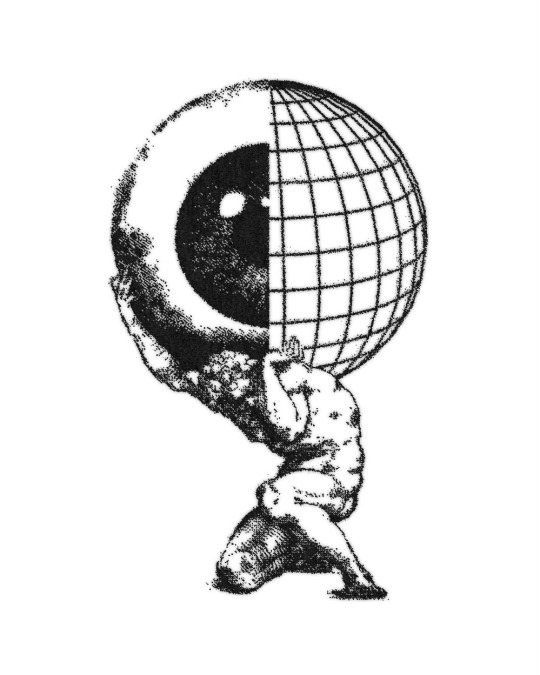Text
instagram
0 notes
Text
“[Keanu] Reeves said a recent conversation about “The Matrix” with a 15-year-old put things into a terrifying perspective. The actor explained to the teenager that his character, Neo, is fighting for what’s real. The teenager scoffed and said, “Who cares if it’s real?” “People are growing up with these tools: We’re listening to music already that’s made by AI in the style of Nirvana, there’s NFT digital art,” Reeves said. “It’s cool, like, Look what the cute machines can make! But there’s a corporatocracy behind it that’s looking to control those things. Culturally, socially, we’re gonna be confronted by the value of real, or the non-value. And then what’s going to be pushed on us? What’s going to be presented to us?” “It’s this sensorium. It’s spectacle. And it’s a system of control and manipulation,” Reeves continued. “We’re on our knees looking at cave walls and seeing the projections, and we’re not having the chance to look behind us.””
—
Keanu Reeves Slams Deepfakes, Film Contract Prevents Digital Edits - Variety
53K notes
·
View notes
Text

Years ago, anthropologist Margaret Mead was asked by a student what she considered to be the first sign of civilization in a culture. The student expected Mead to talk about fishhooks or clay pots or grinding stones.
But no. Mead said that the first sign of civilization in an ancient culture was a femur (thighbone) that had been broken and then healed. Mead explained that in the animal kingdom, if you break your leg, you die. You cannot run from danger, get to the river for a drink or hunt for food. You are meat for prowling beasts. No animal survives a broken leg long enough for the bone to heal.
A broken femur that has healed is evidence that someone has taken time to stay with the one who fell, has bound up the wound, has carried the person to safety and has tended the person through recovery. Helping someone else through difficulty is where civilization starts, Mead said."
We are at our best when we serve others. Be civilized.
~Ira Byock~
776 notes
·
View notes
Text
0 notes
Text
“The man who experiences failure prefers to attribute this failure to the ill-will of another rather than to chance. His incensed feelings are relieved if he imagines a person, and not a thing, to be the cause of his failure; for one can revenge oneself on people, while the iniquities of chance must be swallowed down.”
— Friedrich Nietzsche, Human, All Too Human
60 notes
·
View notes
Text
“Personality is the absolute existential centre. Personality determines itself from within, outside the whole object world, and only determination from within and arising out of freedom, is personality.”
— Nikolai Berdyaev, Slavery and Freedom
93 notes
·
View notes
Text
The first ultraintelligent machine is the last invention that man need ever make, provided that the machine is docile enough to tell us how to keep it under control.
— Irving John Good, 'Concerning the First Ultraintelligent Machine' (Advances in Computers, 1965)
5 notes
·
View notes
Text
“Those who commit acts of violence are surely responsible for them; they are not dupes or mechanisms of an impersonal social force, but agents with responsibility. On the other hand, these individuals are formed, and we would be making a mistake if we reduced their actions to purely self-generated acts of will or symptoms of individual pathology of ‘evil’.”
— Judith Butler, Precarious Life
955 notes
·
View notes
Text
Consciousness vs. Intelligence: Ethical Implications of Decision-Making
The distinction between consciousness in humans and artificial intelligence (AI) revolves around the fundamental nature of subjective experience and self-awareness. While both possess intelligence, the essence of consciousness introduces a profound divergence. Now, we are going to delve into the disparities between human consciousness and AI intelligence, and how this contrast underpins the ethical complexities in utilizing AI for decision-making. Specifically, we will examine the possibility of taking the emotion out of the equation in decision-making processes and taking a good look at the ethical implications this would have
Consciousness is the foundational block of human experience, encapsulating self-awareness, subjective feelings, and the ability to perceive the world in a deeply personal manner. It engenders a profound sense of identity and moral agency, enabling individuals to discern right from wrong, and to form intrinsic values and beliefs. Humans possess qualia, the ineffable and subjective aspects of experience, such as the sensation of pain or the taste of sweetness. This subjective dimension distinguishes human consciousness from AI. Consciousness grants individuals the capacity for moral agency, allowing them to make ethical judgments and to assume responsibility for their actions.
AI, on the other hand, operates on algorithms and data processing, exhibiting intelligence that is devoid of subjective experience. It excels in tasks requiring logic, pattern recognition, and processing vast amounts of information at speeds beyond human capabilities. It also operates on algorithmic logic, executing tasks based on predetermined rules and patterns. It lacks the capacity for intuitive leaps and subjective interpretation, at least for now. AI processes information devoid of emotional biases or subjective inclinations, leading to decisions based solely on objective criteria. Now, is this useful or could it lead to a catastrophe?
The prospect of eradicating emotion from decision-making is a contentious issue with far-reaching ethical consequences. Eliminating emotion risks reducing decision-making to cold rationality, potentially disregarding the nuanced ethical considerations that underlie human values and compassion. The absence of emotion in decision-making raises questions about moral responsibility. If decisions lack emotional considerations, who assumes responsibility for potential negative outcomes? Emotions, particularly empathy, play a crucial role in ethical judgments. Eradicating them may lead to decisions that lack empathy, potentially resulting in morally questionable outcomes. Emotions contribute to cultural and contextual sensitivity in decision-making. AI, lacking emotional understanding, may struggle to navigate diverse ethical landscapes.
Concluding, the distinction between human consciousness and AI forms the crux of ethical considerations in decision-making. While AI excels in rationality and objective processing, it lacks the depth of subjective experience and moral agency inherent in human consciousness. The endeavor to eradicate emotion from decision-making raises profound ethical questions, encompassing issues of morality, responsibility, empathy, and cultural sensitivity. Striking a balance between the strengths of AI and the irreplaceable facets of human consciousness is imperative for navigating the ethical landscape of decision-making in the age of artificial intelligence.
49 notes
·
View notes
